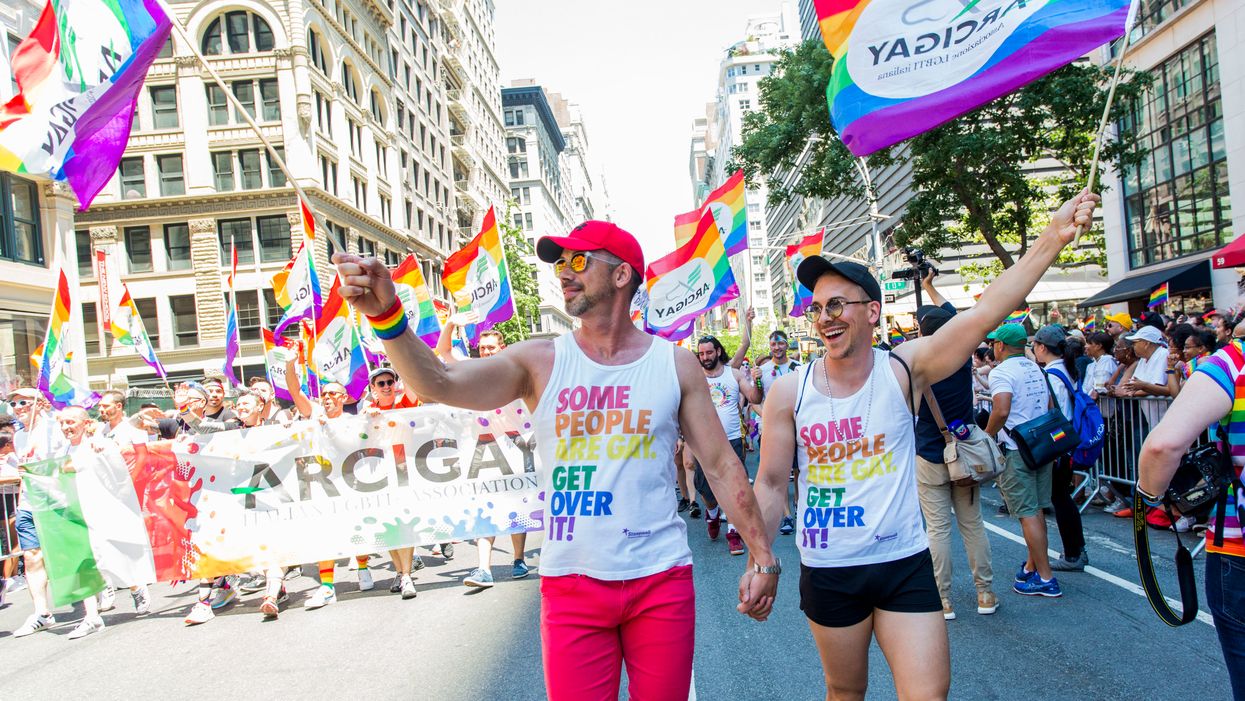
Photo by Erin Lefevre/NurPhoto via Getty Images

New findings
A new poll has found that non-gay Americans ages 18-34 have expressed less support of the LGBTQ community since 2016.
GLAAD commissioned the Harris Poll, which found that support for the LGBTQ community fell 28 percent from 2016 to 2018. According to CNS News, "the percentage of non-gay Americans" of the same age group "who felt comfortable in personal situations involving LGBTQ persons increased."
"For example," the outlet reported, "the percentage of normal Americans who felt 'uncomfortable' in learning a family member is LGBTQ rose from 24 [percent] to 36 [percent]."
The survey was conducted in January 2019 on 1,970 Americans over the age of 18.
Sarah Kate Ellis, president and CEO of the nonprofit organization, said, "The decline in acceptance of [members of the LGBTQ community] and rise in discrimination found in the survey corresponded to an increase in hateful rhetoric in our culture.
"While young people are identifying as LGBTQ in higher rates than ever before, there has also been an uptick in non-LGBTQ young people pushing back against acceptance," Ellis said. "The younger generation has traditionally been thought of as a beacon of progressive values.
"We have taken that idea for granted and this year's results show that the sharp and quick rise in divisive rhetoric in politics and culture is having a negative influence on younger Americans," she added.
Ellis also noted that the survey was a wake-up call for the gay rights and equality organization.
"Headlines that stated 'LGBTQ acceptance is eroding' were a call to arms for GLAAD and so many around the country," Ellis said. "GLAAD doubled down on our formula for making culture change and has now trained nearly 10,000 individuals through the GLAAD Media Institute.
"With the knowledge that erosion in acceptance was primarily happening among younger males, GLAAD launched a program dedicated to working with the video game industry on LGBTQ inclusion, to bring LGBTQ characters and stories to a world where male audiences were consuming content," she noted.
Ellis concluded, "Closing the gap to full acceptance of LGBTQ people will not come from legislation on judicial decisions alone, but from creating a culture where LGBTQ people are embraced and respected. This year's results demonstrate an urgent need for GLAAD to reach younger Americans with stories and campaigns that build acceptance."
According to the poll's findings, 65 percent of females were accepting of the LGBTQ lifestyle in 2016, but only 52 percent of women surveyed for the new report considered themselves to be accepting. Conversely, 62 percent of males were accepting of the community in 2016, but that number fell to 35 percent by 2018.
At least 36 percent of people surveyed for the latest poll reported that they would be uncomfortable to find out that a family member is gay, while just 24 percent of people answered in the affirmative for the 2016 poll.
Also, 34 percent of respondents admitted that they would be uncomfortable to discover that their physician is a member of the LGBTQ community. In 2016, 24 percent said they would be uncomfortable.
The report adds:
Five years ago, GLAAD partnered with The Harris Poll to launch a unique index to measure Americans' attitudes toward lesbian, gay, bisexual, transgender, and queer (LGBTQ) people and issues. In the first three years of the Harris Poll study, the Accelerating Acceptance report showed positive momentum year-over-year, with Americans stating they were more comfortable with LGBTQ people and more supportive of LGBTQ issues. … Last year, however, the acceptance pendulum abruptly stopped and swung in the opposite direction. More non-LGBTQ adults responded that they were 'very' or 'somewhat' uncomfortable around LGBTQ people in select scenarios. … The decline in acceptance and rise in discrimination found in the survey corresponded to an increase in hateful rhetoric in our culture.
You can read more about the poll here.